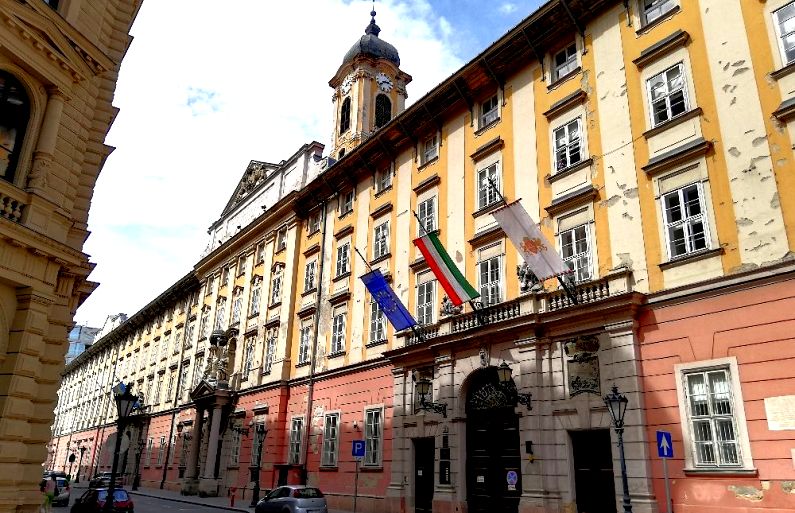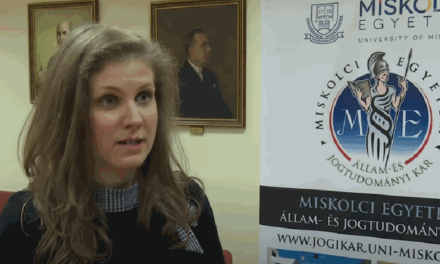Despite the crisis, the ruling party confidently leads the polls, but it will not be easy to win back Budapest from the opposition in the municipal elections due in a year.
So far, neither the ruling party nor the left-wing forces have presented candidates for the municipal election. We know that Fidesz plans to publish the list in autumn at the earliest, is trying to postpone the announcement, and is instead preparing for a short, intensive campaign.
More names in the hat
The identity of Fidesz's mayoral candidate is not expected to be made public until autumn. We know that they haven't even decided on his person yet, there is a principled debate about what kind of candidate should be used to fight for Budapest. According to one idea, they will run a party politician, an experienced, successful district mayor, and according to the other plan, they will stand behind a civilian candidate. Whichever concept comes to fruition has a good chance of defining the campaign. The aim of the civilian candidate may be to lure voters away from the left, while a Fidesz politician may be better suited to motivate the undecided and mobilize his own camp. In the former case, you can expect a lighter, more practical campaign, in the latter case, a tougher, more militant campaign.
Fidesz's vice president, Gábor Kubatov, for example, firmly believes in the latter.The politician stated that he is fed up with "gesture politicians", those who try to please the opposition voters. According to our information, parliamentary faction leader Máté Kocsis, former mayor of Józsefváros, and former Zsolt Láng II may play a significant role in the development of Fidesz's strategy in Budapest. to the district mayor, who is currently a member of parliament and the president of Fidesz in Budapest.
In recent years, the ruling party has been able to gain strength in the peripheral districts of Pest.
But who can be the candidate? Earlier, several names were suggested, including perhaps Balázs Fürjes, the state secretary responsible for the development of Budapest and the capital city agglomeration, who seemed to be the most likely, and government spokeswoman Alexandra Szentkirályi, who was previously one of the deputies of mayor István Tarlós, was mentioned. However, according to our information, their nomination is unlikely, because in the measurements ordered by Fidesz, they achieved a popularity value of around 30 percent, which is not enough for a certain victory even in a favorable scenario for the ruling party, with several opposition candidates running. Among the party politicians, several mayors - mainly from the suburbs - were discussed, for example Péter Kovács from the XVI., Lénárd Borbély from the XXI. and many times Zoltán Pokorni in the XII. from the district. Of course, the question is whether any of them have such ambitions and are willing to risk an almost certain position as mayor. The stakes are not small, because a failed mayoral election can be a break in a politician's career.
There is also the question of whether, for the sake of the mayoral candidacy, Fidesz undertakes not to run a winner in his own district, risking the loss of the district.Dávid Vitézy is being mentioned as a potential civilian candidate, and there might be some reason to start him. Since he was young, he worked for the capital alongside István Tarlós, and achieved significant results with the reforms implemented in Budapest transport. In addition, he is considered to be embedded on the right, but he has never participated in direct party politics, which may appeal to many voters. However, it can be said against him that he is not a political character, he does not necessarily have the radiance that is not harmful for holding a less professional than more political position.
Is Christmas coming again?
So far, only Gergely Karácsony on the left has spoken about his possible candidacy, noting that he would run with the support of the opposition but as a civilian - which sounds surprising coming from the mouth of a party politician. However, it is a question of who among the opposition forces would stand behind it. The Democratic Coalition indicated that its support is far from clear, and the Hungarian Two-Tailed Dog Party stated that it does not support Christmas. Although the MKKP did not enter the parliament, it would be a mistake to underestimate it, since in recent surveys it regularly beats the MSZP, the LMP and often Jobbik - and of course Párbeszéd, but this is not a big surprise in the case of an unmeasurable party . According to rumors, the dog couple is the IX. would support the head of the district, Krisztina Baranyi, if she cherished ambitions for mayor.
Gergely Karácsony, on the other hand, is fighting for political survival. He resigned from his position as party leader, he cannot go back to Zugló because, according to his claim, he will be buried then, so he would presumably do anything to get back on his feet. The question is whether anyone would still allocate money to his campaign after his resignation from the prime ministerial candidacy and the outbreak of the dollar scandal. So it is probably in the hands of Ferencsány Gyurcsány, without them it will be difficult. There are large fault lines in the opposition, especially between the rivals DK and Momentum, so it is not certain that the parties will be able to agree on a common candidate at all.
(…)
Growing pro-government chances in the capital
According to political scientist Krisztián Talabér and an analyst at the Nézőpont Institute, the capital is traditionally the most difficult terrain for Fidesz-KDNP, but the result achieved in the 2022 parliamentary elections and the by-elections won since then indicate that it is not without a chance in Budapest either. It is a challenge for the left-wing parties that the alliance that achieved success in 2019 fell to pieces, and the former alliance is now characterized by mistrust. The dollar scandal only strengthened the disillusionment that their impotent policy has been building for many years.
The opposition has not really been able to organize its ranks since the parliamentary elections, and if it will not be able to do so until the municipal elections, it could easily cause a loss of position even in the capital, which is considered a bastion of the left.Currently in Hungary, running with a left-wing party logo is a strong handicap, so I expect that left-liberal politicians will test themselves under the umbrella of all kinds of local associations or civil organizations. Gergely Karácsony has practically already announced this when he said that he wants to run for mayor with the support of the parties but without party symbols. The other parties are apparently hesitating: the leaders of the LMP and DK previously discussed that the mayor's support is not automatic. It would be a mistake to run with a non-incumbent candidate, the message in public is probably just a political game, part of the bargaining going on in the background, if you like, they ask for the price of the support.
And the time delay is apparently driving the mill of Ferenc Gyurcsány's party: the DK has been able to exert a powerful suction effect in recent months, transferring dozens of politicians from competing parties.
Since Gergely Karácsony can show relatively few results in the fourth year of the city's leadership - and it is expected that he will not achieve much more in the fifth year - instead of a results campaign, he will continue a campaign similar to that of the national election, emphasizing Budapest's role in the fight against the government. Election results show that this tactic resonates well with anti-government voters. It is a difficult task for Fidesz to find a candidate for mayor who shares its values and is also able to speak to voters in the capital who do not vote for the party alliance in the national elections. In the capital, István Tarlós used to be like that, and Fidesz regularly found candidates in cities with county rights who can speak to a wider segment of the electorate through the representation of local issues. For now, it is not visible in the public eye, but it would be surprising if such a candidate were not being built behind the scenes. It would definitely be a great achievement for Fidesz if it kept every district in which it was able to win in 2019. Recapturing the wobbly districts that were lost at the time would be an even brighter success, as would be if it were stronger than 50 percent nationally, or if it appealed to new voters as the strongest party in Budapest. Each can be a realistic goal.
Dániel Ábel Pálfy's article in the Mandiner weekly












